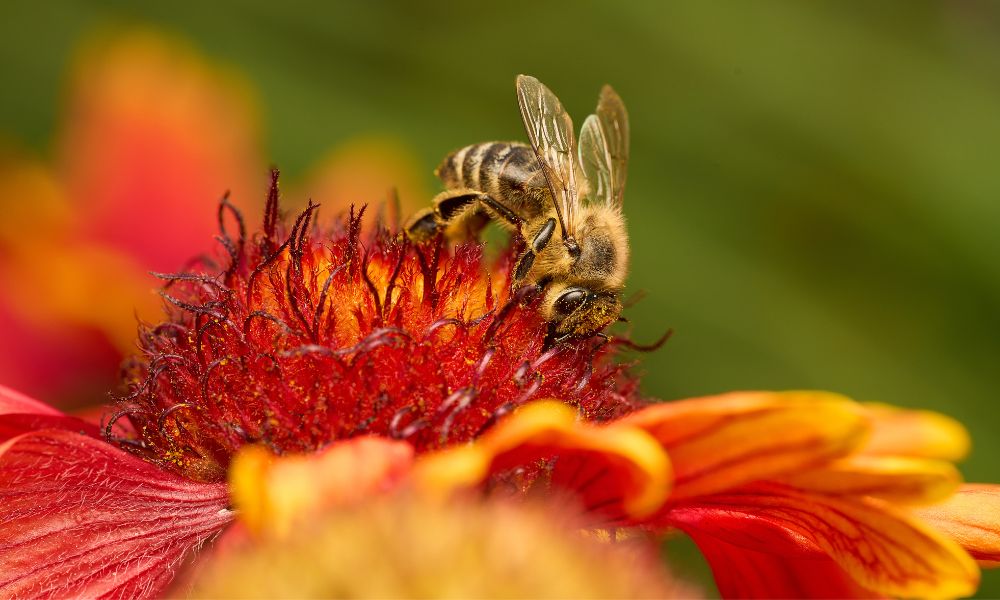Without honeybees, the world would miss out on one of the sweetest tastes we’ve ever known: honey—a beautiful, golden liquid produced from the nectar of flowers and trees. Unfortunately, that sweet liquid everyone enjoys topping on their toast or putting in their latte may not be common in the future unless we help protect the bees.
Since 1962, bee populations have declined because of habitat loss and winter die-off rates. Most of the habitat loss comes from pesticides—how else do pesticides impact honey bees? Find out below.
The Main Reasons Bee Population Is Declining
Our world is changing, and with that change comes a significant impact on insect populations. Many insects do much for the ecosystem, such as bees pollinating flowers to produce honey, However, that is declining. Pesticides are primarily to blame for shrinking bee populations.
Pesticides and Habitat Loss
Because of the decline in wildflower species, bees have an increased risk of dying off. Pesticides have been the main contributor to harming wild plant species, which rely on bees for pollination. No matter how you view pesticides, they target every insect, no matter how avoidant they are of humans.
How Are Bees Exposed to Pesticides?
Honey bees are exposed to pesticides by four different pathways, including directly, meaning that the spray hits them head-on; the second is nesting areas. Bees nest in different areas of gardens, including row crops and brush piles. When you use pesticides nearby, they can spread into the grass through the wind, harming the nesting area of a bee.
The Main Effects Pesticides Have on Honey Bees
How do pesticides affect honey bees? Pollinators experience decreased learning and memory and a depleted chance of reproduction in high levels of pesticides. It’s best to avoid using insecticides at all, as it drastically damages the natural habitats and harms the future population of honey bees.
Better Alternatives to Pesticides in Gardening
The best thing to do when deciding to protect your crops, lawn, and garden from unwanted insects and damage is to use better alternatives to pesticides. You have many options, including homemade fungicide formulas like milk or baking soda for mildew control.
Another positive thing to do for weed growth is to add mulch between your plants. Weeds need sunlight, and the mulch blocks off the light from hitting the seedlings and encouraging growth. Stick to natural remedies that encourage better population growth for pollinators and wild plants.
What Pesticides To Avoid Using
The most highly toxic pesticides to use around bees contain diazinon, Imidan, malathion, and Sevin; these chemicals cause severe issues to the population growth of bee colonies. Stick to a natural remedy, and look for stores with organically sourced pesticides that don’t contain the above components.
Honey Source is all about ensuring our bee farms are never exposed to any harmful pesticides. We provide buyers with a wide selection of bulk honey for sale because it comes from a farm caring for its bee populations. Let’s save the bees by reducing pesticide use so bee colonies can repopulate again, and we can enjoy the sweet nectar produced from wildflowers.

